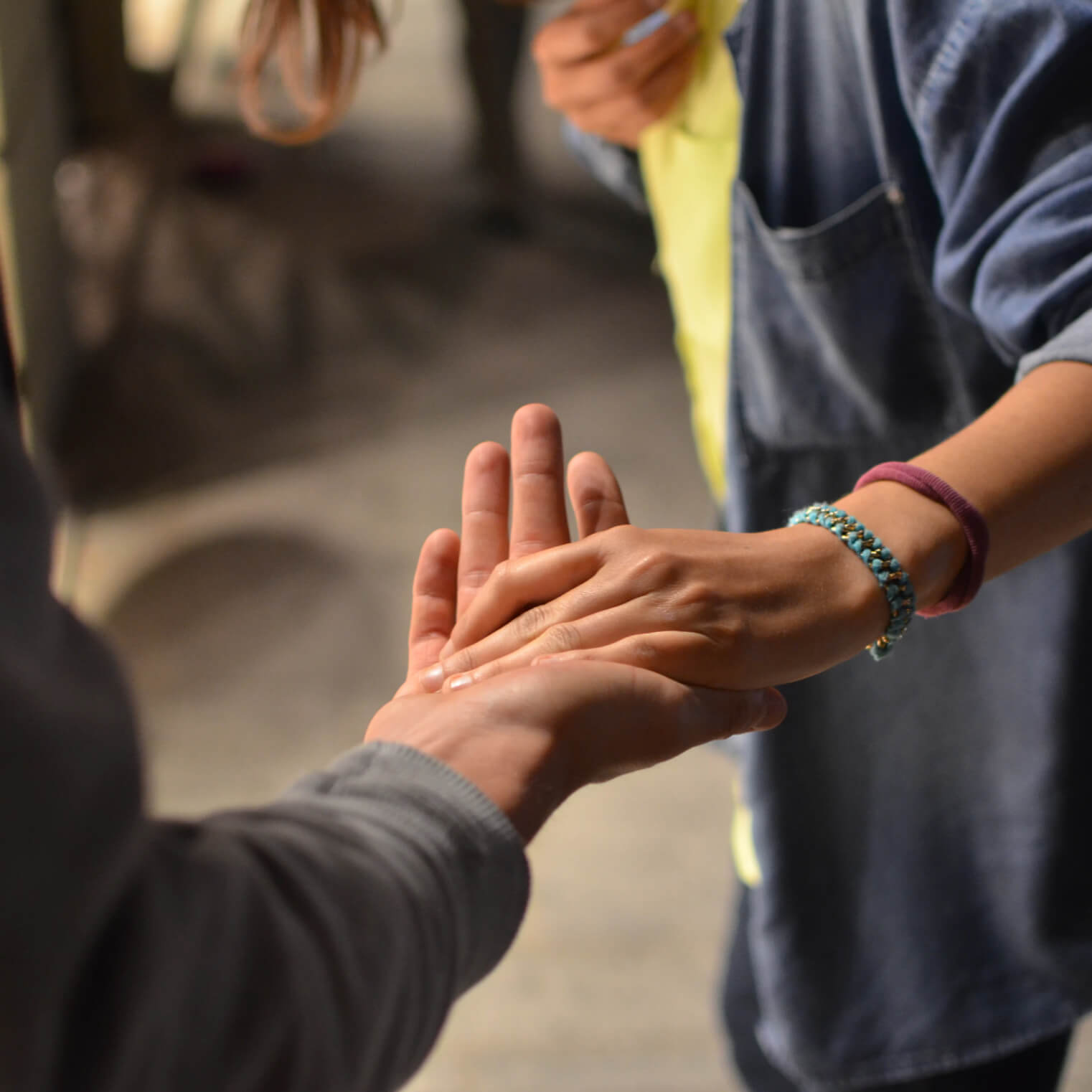Starting from scratch: How Russia's largest food retailer is becoming more sustainable
Although Russia is relatively new to the sustainability space, environmental, social and governance (ESG) programs are rapidly becoming a vital aspect of doing business in the region.
X5 Retail Group is Russia’s largest food retailer. We have a rapidly growing e-business, operate more than 17,000 stores in seven of Russia’s eight federal districts spanning 11 time zones, and generated net retail sales of 1.97 trillion rubles in 2020. We kicked off our Sustainable Development Strategy in December 2019 based on the 17 Sustainable Development Goals (SDGs) adopted by the United Nations in 2015. X5 is working toward what we call our 30X30 goals. Based on 2020 data, the goals include a 30 percent reduction of GHG emissions, 30 percent share of renewable energy used in X5 operations, and 30 percent reduction in ratio of waste generated to retail sales, all by 2030. We’re also aiming to increase the share of solid waste from our operations that is recycled to 95 percent over the next three years, and actively working towards achieving carbon neutrality by 2050.


Already, we see significant progress. Our retail formats have been especially successful in reducing plastic waste: X5’s Perekrestok supermarkets and Pyaterochka proximity stores use plastic bags that contain 35 percent recycled plastic, for example, while our online hypermarket Perekrestok Vprok collected around 125,000 bags that were used for deliveries from customers during the first 10 months of 2020. The bags are sent to local partners that manage the recycling.
Since August 2019, the online hypermarket Perekrestok Vprok has been collecting packages left over from the delivery of goods from customers in order to send them to plants for recycling. In 2020, almost 28,000 buyers returned about 248,000 packages, and since the beginning of the project, about 310,000 packages have been collected and sent off.
As we implement these and other ESG initiatives, we are quickly gaining valuable knowledge around how to achieve our goals in a region where it remains relatively novel to factor sustainability into business success.
When the infrastructure isn't in place, it becomes a corporate responsibility to lead in the development of infrastructure, programs and services that enable sustainability.
Starting from scratch
In Russia, sustainable development is more than an important area of focus for companies and the government: We are increasingly seeing that our consumers are concerned about socially and environmentally responsible shopping. Nevertheless, a strategic approach to ESG remains new for the country, and we are still at the early stages of structuring our approach to sustainability.
At times we are faced with a lack of the necessary infrastructure to support certain sustainable development. For example, Russia has limited capacity for industrial composting, and large-scale recycling of consumer waste has only begun to be introduced in most cities. In these instances, it becomes a corporate responsibility to lead in the development of infrastructure, programs and services that enable sustainability — for instance, our pilot program that has so far installed 20 reverse vending machines that collect plastic packaging for recycling in our stores and offer coupons to customers who use them. As with our recycling program for plastic bags, the packaging is handed off to local recycling plant partners.
Growth and guidelines
When X5 began our sustainable packaging initiative, the original intent was to improve our own packaging for private label products. We conducted an analysis both internally and externally, assessing our competitors and holding discussions with our top suppliers to determine what areas should be the focus for improvement. The analysis informed our draft recommendations, which were then subject to a sizable public hearing that included input from environmental activists and stakeholders along the value chain, from producers of raw materials to recyclers. That process validated our recommendations, and we quickly identified an opportunity to have a bigger, more sustainable impact by developing packaging guidelines for other organizations to follow.
As part of our ongoing dialogue with suppliers, during the summer of 2020, we developed general packaging guidelines for our supply chain, encouraging suppliers to ensure their labor practices respect human rights and that they are environmentally responsible. For instance, we recommend that product packaging is both made from recycled materials and recyclable. This month, we took that a step further by publishing comprehensive sustainable packaging recommendations on 13 product categories in consultation with manufacturers, suppliers, industry associations and the expert community. The recommendations rely on the barrier properties of materials as well as other product specifics and cover three aspects of packaging — design, materials and information — the latter of which includes labelling, customer and employee education. The recommendations account for current regulations, and the technology and infrastructure available in Russia. In parallel, we continue to work towards increasing the share of sustainable packaging used in our own private label products to 50 percent by 2023.
In order to help progress ESG initiatives, employees must understand our key sustainability concepts and be aware of what X5 is doing to reach our goals.
Emphasis on education
To consolidate our work in the field of sustainable development, we quickly realized that we would need to combine our strategy with an extensive educational program. In order to help progress ESG initiatives, employees must understand our key sustainability concepts and be aware of what X5 is doing to reach our goals. X5 deploys three educational strategies: creating awareness; providing training; and encouraging informal engagement. We already have launched online sustainable development training for all 340,000 current and new employees of the company's retail stores and offices. The 45-minute interactive lesson is divided into four thematic blocks: global trends in sustainable development and why they are important; the SDGs; X5 Retail Group's sustainable development strategy; and our company goals with information on how employees can help achieve them.
In addition, we’ve developed dashboards for each of our networks and business units to track our sustainability targets, which informs another important educational work stream: informal engagement of employees around various sustainability initiatives within the office.
Our focus on education serves a dual purpose. Yes, it is important for employees to understand our sustainability goals and what we’re doing to reach them, but by proactively communicating about these initiatives, we institute a culture of transparency. In December 2019, few of X5’s employees knew the meaning of ESG and now, not only is everyone aware, but our progress is monitored by our leadership and the organization is invested in our sustainability, from the top down. This comprehensive awareness and support will be essential in the coming year as we continue to expand our ESG initiatives with an eye on reaching our ambitious 30X30 goals.
By Yana Synesiou, Director of Sustainability X5 Group
Source: greenbiz.com

Правила использования сайта
Общие положения
1.1. Все права на Сайт принадлежат ПАО «Корпоративный центр ИКС 5», адрес места нахождения: 119049, Россия, Москва, улица Коровий Вал 5, стр. 1 (далее — «Компания»). Настоящие Правила регулируются законодательством Российской Федерации, действие Правил ограничено территорией Российской Федерации.
1.2. Компания рекомендует Пользователям Сайта ознакомиться с данными Правилами, а также Политикой Компании по обработке персональных данных. Пользуясь Сайтом, Пользователи Сайта подтверждают свое согласие с положениями Правил, а также Политикой Компании по обработке персональных данных.
2. Интеллектуальные права
2.1. Все права на Сайт принадлежат ПАО «Корпоративный центр ИКС 5», адрес места нахождения: 119049, Россия, Москва, улица Коровий Вал 5, стр. 1 (далее — «Компания»). Настоящие Правила регулируются законодательством Российской Федерации, действие Правил ограничено территорией Российской Федерации.
Правила использования сайта
Общие положения
1.1. Все права на Сайт принадлежат принадлежат ПАО «Корпоративный центр ИКС 5», адрес места нахождения: 119049, Россия, Москва, улица Коровий Вал 5, стр. 1 (далее — «Компания»). Настоящие Правила регулируются законодательством Российской Федерации, действие Правил ограничено территорией Российской Федерации.
1.2. Компания рекомендует Пользователям Сайта ознакомиться с данными Правилами, а также Политикой Компании по обработке персональных данных. Пользуясь Сайтом, Пользователи Сайта подтверждают свое согласие с положениями Правил, а также Политикой Компании по обработке персональных данных.
2. Интеллектуальные права
2.1. Все права на Сайт принадлежат принадлежат ПАО «Корпоративный центр ИКС 5», адрес места нахождения: 119049, Россия, Москва, улица Коровий Вал 5, стр. 1 (далее — «Компания»). Сайт посвящен торговым центрам «МЕГА». Настоящие Правила регулируются законодательством Российской Федерации, действие Правил ограничено территорией Российской Федерации.
Правила использования сайта
Общие положения
1.1. Все права на Сайт принадлежат принадлежат ПАО «Корпоративный центр ИКС 5», адрес места нахождения: 119049, Россия, Москва, улица Коровий Вал 5, стр. 1 (далее — «Компания»). Настоящие Правила регулируются законодательством Российской Федерации, действие Правил ограничено территорией Российской Федерации.
1.2. Компания рекомендует Пользователям Сайта ознакомиться с данными Правилами, а также Политикой Компании по обработке персональных данных. Пользуясь Сайтом, Пользователи Сайта подтверждают свое согласие с положениями Правил, а также Политикой Компании по обработке персональных данных.
2. Интеллектуальные права
2.1. Все права на Сайт принадлежат принадлежат ПАО «Корпоративный центр ИКС 5», адрес места нахождения: 119049, Россия, Москва, улица Коровий Вал 5, стр. 1 (далее — «Компания»). Сайт посвящен торговым центрам «МЕГА». Настоящие Правила регулируются законодательством Российской Федерации, действие Правил ограничено территорией Российской Федерации.
Subscribe to X5 sustainability news
By submitting your email for receiving information materials on ESG from X5 Group, you agree to the Terms of processing your personal data and receiving information letters from X5 Group.
